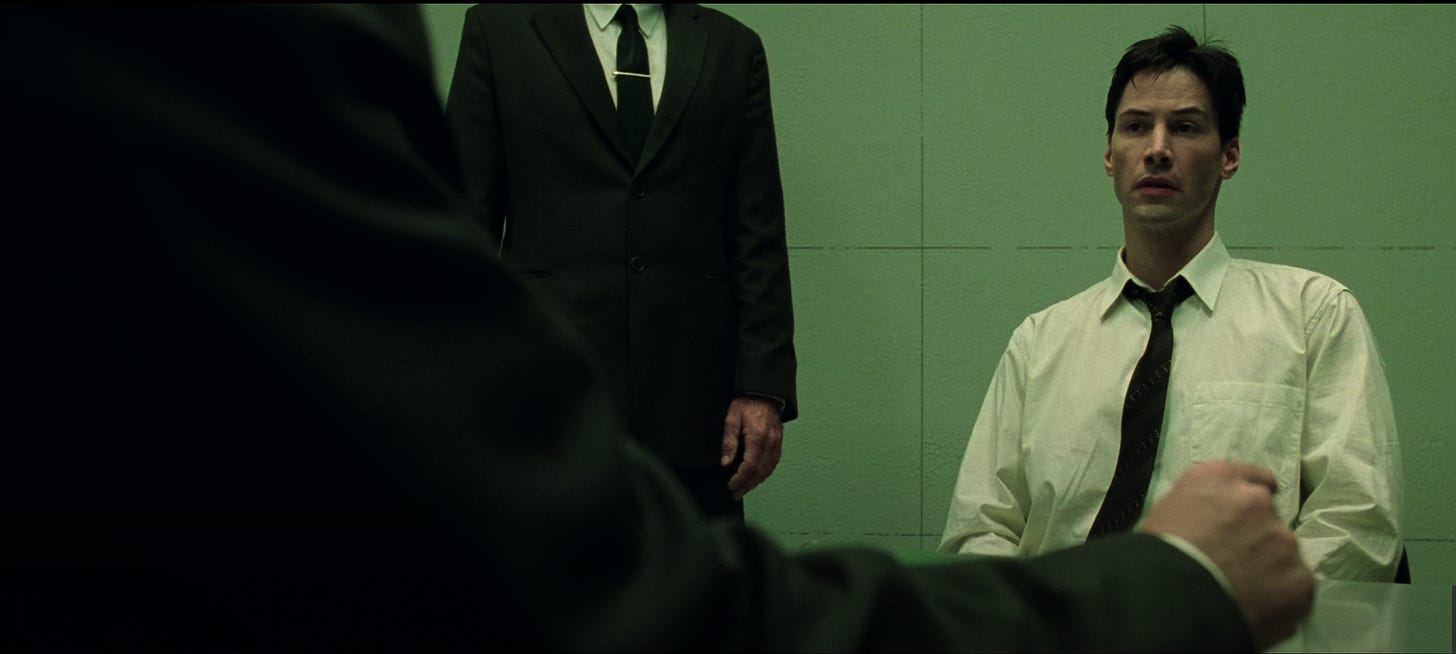FBI Visits Me Over Manifesto
Here's the 11 questions they asked
For the second time in a year, the FBI came to my home yesterday after I published the so-called manifesto of the man charged with killing two Israeli Embassy staffers in Washington.
The visit didn’t surprise me, but its tone did: it was aggressive and threatening.
“You’re not in trouble,” the two special agents kept saying, good-cop style, to get me to answer the questions they would later ask: Where had I gotten the manifesto? Had I had pre-knowledge of the attack? Did I receive instructions about how to disseminate the statement? (I repeatedly referred them to my attorney.)
Not a single mainstream media outlet has published the text because, as they claim, the FBI hasn’t confirmed its authenticity. But the real reason is simple. The media just doesn’t want to publish it. And the FBI doesn’t want the media to think it can.
“You’re not in trouble,” they said a few more times.
“I know,” I replied, wondering what else I could say to get them to go away. (Shutting the door in their faces did not seem wise.) Maybe I could demonstrate that I know enough about the FBI that their elicitation techniques wouldn’t work, I thought.
“You guys from the satellite office in Middleton?” I asked the them, alluding to one of their many but little-known resident agencies, distinct from their field offices (Wisconsin’s being in Milwaukee).
“Have you been there?,” the man asked, looking surprised.
No, that’s where the last visit came from, I explained, smiling. (The Bureau paid me a visit last year about my publication of the JD Vance Dossier.) This also seemed to throw them off.
They were sent by Washington, they said, perhaps trying to distance themselves from the intrusion. Then came the big ask.
“We want to know about the timeline: how you knew about the manifesto before anyone else, and if you were in touch with the shooter beforehand.”
I once again referred them to my attorney, and finally they left.
But that wasn’t the last I’d hear from them.
They left my lawyer — Beth Bourdon, a career public defender who goes toe to toe with cops every day for her day job — a voicemail, which I’ve enclosed below.
As Beth explained to me, a Special Agent Ellen P. Thurmer, one of the two that visited me, told her that they wanted to know why I’d published the manifesto, among other questions.
Beth called them back and after some back and forth, the special agent offered to send their questions in an email, trying to convince me to submit to an interview as part of their investigation.
“The purpose of this interview is to glean as much information regarding the manifesto and how it came into Mr. Klippenstein's possession as possible,” the email said. “We would appreciate [it] if this list of questions was kept between you and your client,” the email read.
These are those 11 questions (from the email I’ve reproduced below):
When did he first encounter the manifesto?
How did he first encounter the manifesto?
Did he receive any instruction from the source of the manifesto about how to disseminate it?
Does the system or platform from which he received the manifesto capture metadata concerning the transfer of the manifesto?
Did he make any edits or changes to the manifesto?
Was this his first and only interaction with whomever submitted the manifesto?
Has anyone else submitted any other documentation regarding this incident?
Did his receipt of the manifesto predate the attack?
Where else, if anywhere, did he disseminate the manifesto?
Does he have any knowledge of where else the manifesto was published or shared?
Why does he think he was the one who received the manifesto?
Other than the questions implying the FBI is entertaining an outlandish theory that I conspired with the shooter, the others seem pretty straightforward and routine.
But there’s a Trump administration dimension to all of this. The administration has many times publicly warned about shadowy, unseen forces that it believes are bankrolling everything from Tesla vandalism to the college protests. That tone from the top, labeling seemingly everything terrorism, tells personnel that the gloves are off and more aggressive work in the field is now permissible.
Get ready to hear that I’m impeding the investigation, giving people a roadmap to the “sources and methods” that are used to catch terrorists, or whatever reason the national security state soundboard offers up for why the public isn’t allowed to know things.
Let’s see if this gets me another visit.
— Edited by William M. Arkin


Im sorry you have to go through this, but know that there are a lot of people out there, myself included, that appreciate you continuing to stay true to journalism and trying to get the truth out there!
“We would appreciate [it] if this list of questions was kept between you and your client,” the email read."
[Publishes questions]
I absolutely love how you won't be intimidated. ❤️🔥